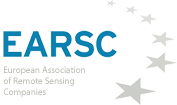Just before Christmas, Google and the UN-FAO announced that they are to collaborate to make geospatial tracking and mapping products more accessible, providing a high-technology assist to countries tackling climate change and much greater capacity to experts developing forest and land-use policies. "For FAO, this is not just a partnership. This is a strategic alliance," said FAO Director-General José Graziano da Silva.
This partnership which will see Google Maps providing 1200 trusted tester credentials on Google Earth Engine to FAO staff and partners, while also providing training and receiving feedback on users' needs and experiences. Ironically, the software which FAO bring to the partnership (Open Foris) has been developed with the financial support of Finland, Germany and Norway.
The agreement shows the power of geo-information to transform lives; in this case by enabling FAO workers in the field to quickly get access to key information. It is a powerful reminder of the public good benefits which our technology can bring.
It also shows once again how European investment and innovation is not fully exploited to the benefit of the European industry and this chimed with a recent report which I read from GP Bullhound which looks at the relative performance of Internet companies in Europe and the US.
In May this year, GP Bullhound has published its second report[1] on the European “unicorns” and comparison with others around the world. A unicorn is a start-up company which has managed to reach $1b in valuation and GP Bullhound is looking particularly at those engaged in internet technology.
...
